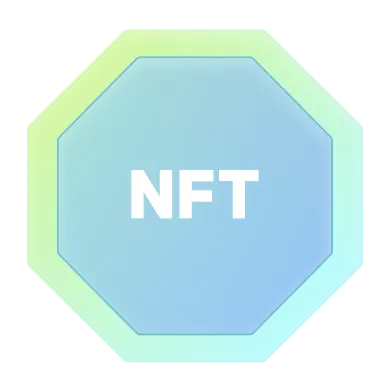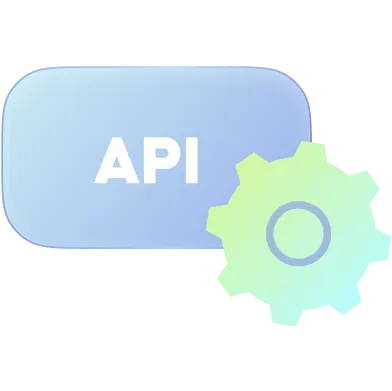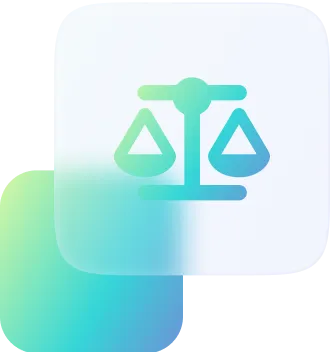Intellectual Property
Policy

INTELLECTUAL PROPERTY POLICY
1. INTRODUCTION
1.1. Scope and Purpose
1.1.1. This Intellectual Property Policy (“Policy”) governs the ownership, protection, use, and enforcement of intellectual property rights associated with the website www.caiz.com (the “Website”), as well as all associated products, platforms, technologies, software, trademarks, trade names, domain names, copyrights, patents, trade secrets, and proprietary information operated, developed, or licensed by Caiz Trade S.r.o. (“Caiz/ Company”), a company incorporated and registered in Bratislava, Slovakia.
1.1.2. The purpose of this Policy is to establish the legal framework for the protection of Caiz’s intellectual property rights (IPR), prevent unauthorized use, and ensure compliance with global intellectual property laws and regulations.
1.1.3. This Policy applies to Caiz’s proprietary technologies, blockchain solutions, digital assets, software, logos, content, business methodologies, and trade secrets that form part of its business operations and services.
1.2. Applicability
1.2.1. This Policy applies to all users, customers, developers, partners, employees, service providers, affiliates, business associates, independent contractors, third-party vendors, and any other individuals or entities who access, use, distribute, modify, or interact with Caiz’s intellectual property in any manner.
1.2.2. All individuals or entities engaging with Caiz’s intellectual property must adhere to the rules and obligations set forth in this Policy and refrain from any unauthorized use, reproduction, distribution, or commercialization of Caiz’s intellectual property assets.
1.2.3. Any violation of this Policy may result in legal consequences, including but not limited to injunctive relief, financial penalties, contract termination, and civil or criminal proceedings under applicable laws.
1.3. Legal and Regulatory Compliance
1.3.1. This Policy is drafted in compliance with international, European Union (EU), and other relevant intellectual property laws and regulations, ensuring Caiz’s intellectual property framework aligns with global best practices. This includes but is not limited
to:
i. European Union Intellectual Property Regulations
a. EU Copyright Directive (Directive 2019/790).
b. Regulation (EU) No. 608/2013 concerning the enforcement of intellectual property rights at the border.
c. Directive 2004/48/EC on the enforcement of intellectual property rights.
d. EU Trademark Regulation (Regulation (EU) 2017/1001).
e. European Patent Convention (EPC).
ii. International Intellectual Property Treaties and Agreements
a. World Intellectual Property Organization (WIPO) Agreements
§ Berne Convention for the Protection of Literary and Artistic Works
§ Paris Convention for the Protection of Industrial Property
§ Madrid Protocol concerning the International Registration of Marks
§ WIPO Copyright Treaty (WCT)
§ WIPO Performances and Phonograms Treaty (WPPT)
b. Trade-Related Aspects of Intellectual Property Rights (TRIPS) Agreement,
administered by the World Trade Organization (WTO)
c. Universal Copyright Convention (UCC)
iii. Local Slovakian and EU Data Protection & Technology Regulations
a. General Data Protection Regulation (GDPR) (Regulation (EU) 2016/679)
b. Digital Services Act (DSA) & Digital Markets Act (DMA)
c. Regulation (EU) 2021/784 on combating terrorist content online
d. E-Commerce Directive (Directive 2000/31/EC)
iv. Blockchain, Cryptocurrency, and Digital Asset Intellectual Property Compliance
a. European Markets in Crypto-Assets Regulation (MiCA) (Regulation (EU) 2023/1114)
b. Financial Action Task Force (FATF) Guidance on Virtual Assets and Virtual Asset Service Providers (VASPs)
c. Intellectual property implications of blockchain-based digital assets and smart contracts
1.3.2. This Policy is designed to ensure Caiz’s intellectual property rights are duly protected under both national and international legal frameworks, considering the cross-border nature of Caiz’s services, digital assets, and technological developments.
1.3.3. In jurisdictions where crypto-related activities are restricted or prohibited, Caiz operates in compliance with local regulatory frameworks and does not engage in activities that contravene applicable national laws.
1.3.4. Caiz reserves the right to update, amend, or modify this Policy at its sole discretion to reflect changes in laws, regulations, technology advancements, or business operations.
Users and stakeholders will be notified of material changes through public announcements, email notifications, or updates on the Website.
2. INTELLECTUAL PROPERTY RIGHTS OWNERSHIP
2.1. Proprietary Rights
2.1.1. Exclusive Ownership:
All intellectual property rights (IPR), including but not limited to copyrights, trademarks, trade names, domain names, logos, patents, design rights, trade secrets, confidential information, proprietary technologies, source code, algorithms, and database rights, whether registered or unregistered, related to Caiz, its Website, digital platforms, blockchain infrastructure, smart contracts, and all associated products and services, are and shall remain the exclusive property of Caiz, a company duly incorporated under the laws of Slovakia and the European Union.
2.1.2. Protection under Statutory Laws and Treaties:
The intellectual property assets of Caiz are protected under the following legal frameworks:
i. Copyrights: Protected under the EU Copyright Directive (Directive 2019/790), Berne Convention for the Protection of Literary and Artistic Works and WIPO Copyright Treaty (WCT).
ii. Trademarks: Governed by EU Trademark Regulation (Regulation (EU) 2017/1001) and Madrid Protocol for International Trademark Protection.
iii. Patents: Governed by the European Patent Convention (EPC) and the Patent Cooperation Treaty (PCT) for international patent filings.
iv. Trade Secrets and Confidential Information: Governed by the EU Trade Secrets Directive (Directive (EU) 2016/943).
v. Blockchain and Digital Assets Protection: Caiz’s proprietary blockchain technology, smart contracts, and cryptographic systems are protected under EU regulatory frameworks, including but not limited to the Markets in Crypto-Assets Regulation (MiCA) (Regulation (EU) 2023/1114).
2.1.3. Unauthorized Use and Prohibited Actions:
Any unauthorized reproduction, modification, copying, adaptation, reverse engineering, resale, licensing, or distribution of Caiz’s intellectual property without explicit prior written permission from Caiz is strictly prohibited. This includes but is not limited to:
i. Using Caiz’s trademarks, logos, brand elements, and visual identity for commercial or misleading purposes.
ii. Reproducing or modifying Caiz’s proprietary software, source code, blockchain algorithms, or cryptographic methodologies.
iii. Republishing, data scraping, deep linking, or automated extraction of content from Caiz’s Website, platforms, or databases.
iv. Registering or using domain names, trade names, or social media handles incorporating Caiz’s trademarks without express written approval.
v. Developing derivative works or competing blockchain solutions using Caiz’s proprietary technologies without an authorized licensing agreement. Any violation of these provisions shall result in legal action, including civil claims, injunctive relief, financial damages, and regulatory enforcement measures.
2.2. User-Generated Content
2.2.1. License Grant to Caiz: By submitting, uploading, posting, or otherwise sharing any content, data, text, graphics, code, media, audiovisual content, blockchain assets, or other materials (collectively, “User-Generated Content”) on Caiz’s Website, blockchain network, or affiliated digital platforms, the user grants Caiz a nonexclusive, royalty-free, worldwide, perpetual, irrevocable, sublicensable, and transferable license to:
i. Use, reproduce, modify, distribute, adapt, translate, display, perform, and create derivative works from such content.
ii. Incorporate the content into Caiz’s services, marketing, research, product enhancements, and blockchain ecosystem improvements.
iii. Publicly share or display user-generated content, unless restricted by confidentiality obligations or data protection laws.
Users acknowledge and agree that Caiz shall not be liable for any loss, misappropriation, or unauthorized use of user-generated content due to its inherent public and decentralized nature on blockchain networks.
2.2.2. User Responsibilities and Legal Compliance:
Users submitting content on Caiz’s platforms must ensure that:
i. Ownership & Rights: They own or have the legal right, license, or authorization to submit the content.
ii. Non-Infringement: The content does not infringe any third-party copyrights, trademarks, patents, or other intellectual property rights.
iii. Legality: The content complies with applicable laws, regulations, and industry standards, including financial regulations governing crypto-assets.
iv. No Malicious Code: The content does not contain viruses, worms, malicious scripts, exploits, or any harmful technology that may compromise Caiz’s systems, software, or blockchain network.
v. No Illegal or Prohibited Material: The content must not promote or facilitate fraud, money laundering, illicit financial activities, or violations of regulatory frameworks such as the EU Anti-Money Laundering Directive (AMLD6), the Financial Action
Task Force (FATF) Guidelines, or the Slovak Penal Code (Act No. 300/2005 Coll.).
2.2.3. Enforcement and Content Removal:
Caiz reserves the right, but not the obligation, to monitor, remove, suspend, block, or take legal action against any user-generated content that:
i. Violates this Policy or any applicable laws, treaties, or regulations.
ii. Constitutes fraud, impersonation, trademark infringement, or unfair competition.
iii. Harms Caiz’s reputation, market integrity, or intellectual property rights.
iv. Is subject to copyright takedown requests, DMCA notices, or court orders.
Users acknowledge that Caiz is not liable for any damages, losses, or legal claims arising from the removal or restriction of infringing content.
2.3. Reservation of Rights
Caiz explicitly reserves all rights not expressly granted in this Policy. No part of Caiz’s intellectual property shall be licensed, sold, assigned, or transferred without a formal written agreement executed by authorized representatives of Caiz.
Users, developers, third-party vendors, and business partners must obtain a formal license or authorization before using any aspect of Caiz’s proprietary technologies, branding, or digital assets. Unauthorized or infringing use shall be prosecuted to the fullest extent permitted under Slovakian, EU, and international intellectual property laws.
3. COPYRIGHTS
3.1. Copyright Ownership
3.1.1. Scope of Copyright Protection
All original works created, developed, published, or made available by Caiz, including but not limited to:
i. Text, articles, whitepapers, reports, and documentation
ii. Software, source code, smart contracts, and blockchain protocols
iii. Graphics, images, user interface (UI) designs, and website layouts
iv. Videos, animations, audio clips, and multimedia content
v. Data compilations, research papers, and market analysis reports
vi. Website structure, design, and navigation elements are protected under applicable copyright laws, including:
i. EU Copyright Directive (Directive 2019/790 on Copyright and Related Rights in the Digital Single Market)
ii. Berne Convention for the Protection of Literary and Artistic Works
iii. WIPO Copyright Treaty (WCT) and Universal Copyright Convention (UCC)
iv. Digital Millennium Copyright Act (DMCA) (17 U.S.C. § 512)
v. Slovak Copyright Act (Act No. 185/2015 Coll.)
vi. Trade-Related Aspects of Intellectual Property Rights (TRIPS) Agreement
3.1.2. Exclusive Rights of Caiz
Caiz retains full copyright ownership over all its proprietary content, ensuring that:
i. No entity or individual may copy, reproduce, distribute, publicly display, transmit, modify, or create derivative works of Caiz’s copyrighted materials without explicit written authorization.
ii. Copyright protection applies globally, irrespective of the geographical location of users accessing the content.
iii. The exclusive rights granted under copyright law include, but are not limited to:
a. Right of reproduction (copying and storing content)
b. Right of distribution (sale, licensing, or sharing)
c. Right of public display and performance
d. Right of modification and adaptation
3.1.3. Moral Rights & Attribution
Caiz asserts moral rights over its copyrighted content, ensuring that:
i. The integrity of the work is preserved.
ii. No unauthorized alterations or misrepresentations are made.
iii. Proper attribution to Caiz is maintained in permitted use cases.
Caiz does not waive its moral rights, even when licensing or permitting limited use of its copyrighted materials.
3.2. Permitted Use of Copyrighted Materials
3.2.1. Limited License for Personal and Non-Commercial Use
Users may access and use Caiz’s copyrighted content only for personal, informational, educational, and non-commercial purposes, subject to the following conditions:
i. Content must be accessed and used in its original form without any modifications.
ii. Users may download, print, or store content for personal reference but may not distribute or republish it.
iii. Any permitted use must include proper attribution to Caiz.
3.2.2. Prohibited Uses
Without obtaining prior written authorization from Caiz, users are strictly prohibited from:
i. Reproducing, copying, redistributing, or commercially exploiting Caiz’s copyrighted content.
ii. Creating derivative works, adaptations, or translations of Caiz’s content.
iii. Uploading, embedding, or sharing Caiz’s content on third-party platforms, websites, or social media.
iv. Using Caiz’s content for advertising, endorsement, or promotional activities without an official licensing agreement.
3.2.3. Content Usage by Partners and Affiliates
Official business partners, affiliates, media entities, and third-party collaborators must obtain a formal licensing agreement before using any copyrighted material belonging to Caiz. Requests for licenses may be submitted to legal@caiz.com.
3.2.4. Revocation of Access and Legal Enforcement
Caiz reserves the right to:
i. Revoke any granted usage rights at its sole discretion if a user breaches this Policy.
ii. Take legal action against unauthorized reproduction, infringement, or misappropriation of copyrighted materials.
3.3. DMCA and Copyright Infringement Claims
3.3.1. Compliance with DMCA and Copyright Enforcement Laws
Caiz strictly adheres to copyright enforcement laws, including the Digital Millennium Copyright Act (DMCA) and international anti-piracy regulations, to protect its copyrighted content against unauthorized use.
3.3.2. Reporting Copyright Infringement
If an individual or entity believes that their copyrighted work has been infringed upon or used without authorization on Caiz’s platform, they may submit a copyright infringement claim to info@caiz.com. The complaint must include:
i. A detailed description of the copyrighted work allegedly infringed.
ii. The URL or location of the infringing material on Caiz’s Website or platform.
iii. The complainant’s full name, address, telephone number, and email address.
iv. A good faith statement, under penalty of perjury, that:
a. The complainant is the copyright owner or authorized agent.
b. The use of the copyrighted material is not authorized by the owner, their agent,
or applicable law.
v. An electronic or physical signature of the complainant or their authorized representative.
3.3.3. Processing of Copyright Complaints
Caiz will:
i. Acknowledge receipt of the complaint within 24 hours and begin the investigation.
ii. If a valid claim is established, promptly remove the infringing content.
iii. If necessary, terminate the accounts of repeat infringers and block further unauthorized access.
3.3.4. Counter-Notification Procedure (For Disputed Takedowns)
If a user believes their content was wrongly removed due to a copyright complaint, they may file a counter-notification stating:
i. Identification of the removed content and its location prior to removal.
ii. A statement under penalty of perjury that the user has a legitimate right to use the content.
iii. The user’s full name, address, telephone number, and email address.
iv. A consent statement agreeing to the jurisdiction of the Slovakian courts in case of legal proceedings.
v. A physical or electronic signature of the user submitting the counter-notification.
Upon receiving a counter-notification, Caiz may:
i. Restore the removed content if the copyright claim is found invalid.
ii. Refer the case to legal authorities if the claim is disputed.
3.4. Copyright Compliance and Enforcement
3.4.1. Technological Measures for Copyright Protection
To enforce copyright compliance, Caiz employs automated and manual mechanisms, including:
i. Digital Rights Management (DRM) for protecting proprietary digital assets.
ii. Blockchain-based copyright authentication to prevent unauthorized duplication.
iii. Automated content tracking systems to monitor and detect unauthorized use of
Caiz’s materials online.
3.4.2. Legal Remedies for Copyright Infringement Caiz reserves the right to take legal action against any individual or entity found infringing upon its copyrighted materials, including:
i. Cease-and-desist orders requiring the infringing party to remove the unauthorized content.
ii. Financial damages and restitution claims for losses caused by copyright violations.
iii. Court injunctions and lawsuits under Slovak, EU, and international copyright laws.
4. TRADEMARKS
4.1. Trademark Protection
4.1.1. Ownership and Exclusive Rights
All trademarks, service marks, trade names, logos, branding elements, slogans, and other distinctive symbols associated with Caiz (collectively, “Caiz Marks”) are the exclusive property of Caiz. The protected Caiz Marks include, but are not
limited to:
i. The word “CAIZ”, whether stylized or non-stylized.
ii. The Caiz logo, including all variations, designs, and color schemes.
iii. Any trademarks, service marks, logos, trade names, and product names used in connection with Caiz’s blockchain technology, digital assets, financial services, cryptocurrency operations, and related offerings.
iv. Any graphical representations, icons, taglines, or branding identifiers associated with Caiz’s ecosystem, applications, smart contracts, decentralized finance (DeFi) solutions, or blockchain infrastructure.
4.1.2. Legal Protection and Registration
The Caiz Marks are registered and protected under:
i. European Union Trademark Regulation (Regulation (EU) 2017/1001)
ii. Madrid Agreement and Madrid Protocol (WIPO) for international trademark protection
iii. Trade-Related Aspects of Intellectual Property Rights (TRIPS) Agreement under the WTO framework
iv. Slovak Trademark Act No. 506/2009 Coll.
v. Paris Convention for the Protection of Industrial Property
4.1.3. Prohibited Use of Caiz Trademarks
The following unauthorized uses of Caiz Marks are strictly prohibited:
i. Reproducing, imitating, modifying, or misusing the Caiz Marks in any manner that may cause confusion, deception, or false association.
ii. Using Caiz Marks in domain names, social media handles, advertising, marketing, or promotional materials without prior written approval from Caiz.
iii. Employing Caiz Marks in SEO tactics, meta-tags, hidden text, or search engine advertising (e.g., Google Ads, Bing Ads) to mislead or divert consumers.
iv. Registering or applying for trademarks that are identical or confusingly similar to
Caiz Marks in any jurisdiction.
v. Affixing Caiz Marks to counterfeit products, unauthorized services, or misleading advertisements.
vi. Using Caiz Marks in any way that damages, dilutes, or misrepresents the reputation, goodwill, or integrity of Caiz.
Any unauthorized use of Caiz Marks may result in legal action, including but not limited to:
i. Cease-and-desist orders
ii. Trademark infringement lawsuits
iii. Financial damages and injunctive relief
iv. Seizure of counterfeit or unauthorized products under applicable intellectual property laws
4.2. Fair Use and Third-Party Trademarks
4.2.1. Limited Fair Use of Caiz Trademarks
Caiz permits limited fair use of its trademarks only under the following conditions:
i. Editorial Use: News media, journalists, and industry analysts may use Caiz Marks for reporting, provided they do not modify, distort, or misrepresent Caiz’s brand identity.
ii. Descriptive Use: Users may refer to Caiz’s products or services accurately and in good faith, without implying affiliation, sponsorship, or endorsement.
iii. Non-Commercial Use: Personal blogs, academic research, or educational materials may reference Caiz Marks as long as no commercial advantage is gained.
Fair use does not grant any ownership rights or licensing rights to Caiz Marks. Misuse of fair use provisions may lead to legal consequences.
4.2.2. Authorized Licensing and Use by Third Parties Entities or individuals seeking to use Caiz Marks for commercial purposes, including partnerships, endorsements, co-branding, or white-labelling, must:
i. Submit a formal trademark licensing request to legal@caiz.com.
ii. Execute a written trademark licensing agreement with Caiz, outlining usage scope, branding guidelines, and compliance obligations.
iii. Comply with Caiz’s brand identity standards to maintain brand integrity.
Caiz reserves the right to approve, deny, revoke, or modify any granted trademark license at its sole discretion.
4.2.3. Third-Party Trademarks on Caiz’s Website
4.2.4. Any third-party trademarks, logos, or brand names that appear on Caiz’s Website, platform, or marketing materials belong to their respective owners. The presence of such marks does not imply endorsement, affiliation, or sponsorship by Caiz unless explicitly stated in a partnership agreement. Caiz respects third-party intellectual property rights and complies with applicable laws concerning the fair and legal use of third-party trademarks. If any third-party believes their trademark has been used improperly on Caiz’s Website, they may submit a complaint to info@caiz.com for review.
4.3. Enforcement of Trademark Rights
4.3.1. Monitoring and Protection
Caiz actively monitors and enforces its trademark rights globally through:
i. Trademark watch services to detect unauthorized registrations or misuse.
ii. Takedown notices to online marketplaces, social media platforms, and search engines.
iii. Legal actions against trademark infringement, counterfeiting, and cybersquatting.
4.3.2. Reporting Trademark Violations If you suspect any unauthorized use, infringement, counterfeiting, or misrepresentation of Caiz Marks, please report it to legal@caiz.com with:
i. Description of the infringement and evidence of unauthorized use.
ii. Name, contact information, and legal entity (if applicable) of the reporting party.
iii. Location (URL, domain name, advertisement, product listing, or document) where the trademark violation occurred.
Caiz will investigate all trademark infringement complaints and take appropriate legal action against violators.
5. PATENTS AND TECHNOLOGICAL INNOVATIONS
5.1. Patent Protection
5.1.1. Scope of Patent Protection Caiz is committed to protecting its technological innovations, blockchain solutions, cryptographic protocols, smart contract designs, and proprietary financial technologies through patent registrations in relevant jurisdictions. The intellectual property (IP) covered by Caiz’s patents includes, but is not limited to:
i. Blockchain Infrastructure & Distributed Ledger Technologies (DLT)
ii. Smart Contract Architectures & Decentralized Finance (DeFi) Mechanisms
iii. Cryptographic Security Algorithms, Encryption Models, and Consensus Mechanisms
iv. Automated Regulatory Compliance & Identity Verification Systems
v. Innovative Tokenization & Stablecoin Issuance Protocols
vi. Decentralized Applications (dApps) and Financial Interoperability Solutions
vii. Cross-Border Crypto Payment Gateways & Blockchain-Based Settlement Systems
Caiz’s patented technologies and proprietary methodologies are protected under:
i. European Patent Convention (EPC) and Regulation (EU) 1257/2012 (Unitary Patent System)
ii. Patent Cooperation Treaty (PCT) for International Patent Protection
iii. Trade-Related Aspects of Intellectual Property Rights (TRIPS) Agreement (WTO)
iv. World Intellectual Property Organization (WIPO) Patent Regulations
v. National Patent Laws of Various Jurisdictions Where Caiz Operates
5.1.2. Exclusive Rights of Caiz Over Patented Technologies All patents issued to, applied for, or assigned to Caiz confer exclusive rights to use, manufacture, distribute, license, or commercialize the patented technology. The following activities are strictly prohibited without explicit written authorization from Caiz:
i. Unauthorized use, duplication, or adaptation of Caiz’s patented technologies.
ii. Reverse engineering, decompiling, or disassembling any component of Caiz’s patented infrastructure.
iii. Creating derivative works, competing technologies, or alternative implementations based on Caiz’s patents.
iv. Selling, reselling, sublicensing, or exploiting Caiz’s patented innovations for commercial gain.
Violators may be subject to legal action, including but not limited to patent infringement lawsuits, cease-and-desist orders, financial penalties, and injunctive relief under applicable laws.
5.1.3. Global Patent Filings and Protection Strategies
Caiz actively monitors and enforces its patent rights in multiple jurisdictions. Patent filings may be registered in:
i. The European Patent Office (EPO) for pan-European patent protection
ii. The United States Patent and Trademark Office (USPTO) (where applicable)
iii. The Japan Patent Office (JPO) and China National Intellectual Property Administration (CNIPA)
iv. International PCT filings under the World Intellectual Property Organization (WIPO)
Caiz reserves the right to expand, amend, or enhance its patent portfolio to strengthen its competitive position in the blockchain and financial technology sectors.
5.2. Licensing of Patents
5.2.1. Patent Licensing Framework
Caiz may grant licenses to third parties, strategic partners, technology developers, and financial institutions that seek to use, integrate, or commercialize its patented technologies. Patent licensing is governed by strict contractual agreements, ensuring:
i. Non-exclusive or exclusive rights, depending on the scope of the license.
ii. Clearly defined territorial and field-of-use limitations.
iii. Strict compliance with EU and international patent laws.
iv. Prohibition of sublicense transfers or assignments without prior approval.
5.2.2. Categories of Patent Licensing
Patent licenses may be structured under the following categories:
i. Technology Integration Licenses – Allows third-party developers to integrate Caiz’s blockchain protocols, smart contracts, or cryptographic mechanisms into their products.
ii. Enterprise Licensing Agreements – Enables financial institutions, payment processors, or fintech startups to utilize Caiz’s patented financial technologies.
iii. White-Label Licensing – Permits authorized third parties to develop and deploy solutions based on Caiz’s patented innovations under their branding.
iv. Joint Venture & Collaborative Licensing – Establishes co-development agreements where Caiz and licensed parties share research, innovations, or technology advancements.
5.2.3. Licensing Application Process
Entities seeking to license Caiz’s patented technologies must:
i. Submit a formal licensing request to legal@caiz.com, specifying the intended use, jurisdiction, and business purpose.
ii. Undergo a due diligence review to verify business credibility, regulatory compliance, and non-infringement commitments.
iii. Negotiate contractual terms, including licensing fees, royalties, usage restrictions, and compliance obligations.
iv. Execute a formal patent licensing agreement, signed by both parties.
v. Undergo periodic audits to ensure adherence to licensing terms.
Failure to comply with licensing terms may result in termination of the license, revocation of usage rights, financial penalties, and legal action for breach of contract or patent infringement.
5.2.4. Restrictions on Patent Licensing
Caiz maintains strict control over its patented technologies and reserves the right to deny licensing requests if:
i. The applicant poses a competitive threat or intends to use the technology for unauthorized purposes.
ii. The licensing arrangement violates EU or international regulations governing blockchain technology, digital assets, and financial transactions.
iii. The use of Caiz’s technology conflicts with legal, ethical, or regulatory considerations in restricted jurisdictions.
5.2.5. Prohibited Patent Licensing Practices
The following patent-related misconduct is strictly prohibited:
i. Patent Trolling – Unauthorized attempts to assert patent rights for financial gain without legitimate innovation or business operations.
ii. Misuse of Licensed Technologies – Deploying licensed patents for illicit purposes, money laundering, or circumventing financial regulations.
iii. Patent Misrepresentation – Falsely claiming ownership, licensing rights, or proprietary control over Caiz’s patented innovations.
Violations may result in contractual penalties, termination of licenses, and legal prosecution under patent enforcement laws.
5.3. Enforcement of Patent Rights
5.3.1. Monitoring and Protection Measures
Caiz actively monitors the use and potential infringement of its patented technologies through:
i. Automated patent tracking systems to detect unauthorized use.
ii. Surveillance of blockchain networks and financial platforms for patent violations.
iii. Cooperation with international intellectual property enforcement agencies.
5.3.2. Legal Remedies for Patent Infringement
If an entity is found to be infringing upon Caiz’s patented technologies, Caiz may initiate legal proceedings, including:
i. Cease-and-desist letters demanding immediate termination of unauthorized use.
ii. Patent infringement lawsuits, seeking financial damages and injunctive relief.
iii. International arbitration under WIPO and ICC (International Chamber of Commerce) dispute resolution frameworks.
iv. Seizure of infringing technologies, source code, or products through court orders.
Caiz reserves the right to pursue criminal charges where infringement constitutes fraud, corporate espionage, or economic sabotage under applicable laws.
6. TRADE SECRETS AND CONFIDENTIAL INFORMATION
6.1. Definition and Scope
6.1.1. Definition of Trade Secrets
A trade secret refers to any confidential, proprietary, or non-public information owned by Caiz that derives economic value from not being generally known or readily accessible by competitors or the public. This includes, but is not limited to:
i. Proprietary Algorithms & Software Source Code
a. Blockchain consensus mechanisms
b. Smart contract architectures and decentralized financial models
c. Proprietary cryptographic encryption technologies
d. Software frameworks and proprietary APIs
ii. Business Strategies & Operational Frameworks
a. Strategic business expansion plans
b. Market research data and competitive intelligence
c. Revenue models, pricing structures, and licensing strategies
d. Investment and financial structuring methodologies
iii. Technical & Scientific Innovations
a. Unpublished patents, pending patent applications, and R&D processes
b. Blockchain security protocols and compliance automation solutions
c. Proprietary artificial intelligence (AI) and machine learning integrations
iv. Customer & Financial Data
a. Personally identifiable information (PII) of customers, investors, or partners
b. Non-public financial reports, projections, and transactional records
c. User behavioural analytics and engagement metrics
v. Business Processes & Internal Operations
a. Supply chain and vendor management strategies
b. Internal policies and governance frameworks
c. Confidential legal agreements and regulatory compliance methodologies
6.1.2. Legal Protection of Trade Secrets
Caiz’s trade secrets and confidential information are protected under various national and international laws, including:
i. EU Trade Secrets Directive (Directive (EU) 2016/943)
ii. World Intellectual Property Organization (WIPO) Guidelines on Trade Secrets Protection
iii. Trade-Related Aspects of Intellectual Property Rights (TRIPS) Agreement (WTO)
iv. Defend Trade Secrets Act of 2016 (U.S. applicability for relevant jurisdictions)
6.1.3. Security Measures for Trade Secret Protection
Caiz implements industry-standard security measures to prevent unauthorized disclosure, misappropriation, or compromise of its trade secrets.
These measures
include:
i. Encryption & Cybersecurity Protections
a. End-to-end encryption of proprietary algorithms and blockchain transactions
b. Access-controlled environments for source code repositories (e.g., GitHub Enterprise, private blockchain nodes)
c. Multi-factor authentication (MFA) for sensitive systems and databases
ii. Access Control Mechanisms
a. Restricted access to confidential data based on role-based access control (RBAC) principles
b. Internal classification of trade secrets into restricted, confidential, and top-secret tiers
c. Use of secure cloud storage and confidential computing environments
iii. Contractual Safeguards
a. Mandatory Non-Disclosure Agreements (NDAs) for all employees, contractors, vendors, and business associates
b. Legally binding confidentiality clauses in employment and third-party contracts
c. Enforceable restrictive covenants, including non-compete and non-solicitation clauses
6.2. Obligations of Users and Third Parties
6.2.1. Non-Disclosure Agreements (NDAs) and Confidentiality Obligations
To access Caiz’s confidential information or trade secrets, any party, including employees, contractors, affiliates, investors, vendors, and business partners, must enter into a legally binding Non-Disclosure Agreement (NDA). Key obligations under the NDA include:
i. Prohibition on Disclosure:
a. No party may disclose, share, transmit, or publish any confidential information to unauthorized persons or entities.
b. Disclosure to internal employees or teams must be limited to a need-to-know basis.
ii. Use Restrictions:
a. Confidential information must only be used for the intended purpose specified in the NDA.
b. Any use outside of agreed-upon business operations, research collaborations, or strategic discussions is strictly prohibited.
iii. No Reverse Engineering or Misappropriation:
a. Users may not decompile, analyse, reverse-engineer, or attempt to derive trade secret-protected technologies.
b. Unlawful access, hacking, or circumvention of Caiz’s security measures will result in legal action and potential criminal liability.
iv. Return and Deletion Obligations:
a. Upon termination of an employment contract, partnership agreement, or business relationship, the receiving party must return or securely delete all trade secret materials.
b. No copies, derivatives, or retained information may be kept without Caiz’s explicit written approval.
6.2.2. Employees’ and Contractors’ Confidentiality Duties
All employees, executives, advisors, contractors, and service providers of Caiz must comply with strict confidentiality and data protection policies, which include:
i. Obligations under Employment Contracts
a. Employees must acknowledge and agree to confidentiality clauses in their employment agreements.
b. All work product developed by employees within the scope of their employment remains the intellectual property of Caiz.
ii. No Unauthorized Disclosure or Internal Data Leaks
a. Employees are prohibited from discussing, sharing, or distributing internal company information outside authorized communication channels.
b. Internal trade secrets must not be discussed in public settings, including conferences, social media, or casual conversations.
iii. Post-Employment Confidentiality & Non-Compete Restrictions
a. Former employees must not use, share, or monetize trade secrets even after contract termination.
b. Employees may be restricted from joining competitors or engaging in blockchain-related projects for a specified duration as per Caiz’s non-compete agreements.
6.2.3. Third-Party Contractors, Vendors, and Affiliates
All third-party service providers, external consultants, technology partners, and vendors handling Caiz’s confidential information must:
i. Sign a Vendor or Contractor NDA before accessing any proprietary data.
ii. Ensure all employees and subcontractors working on Caiz-related projects comply with confidentiality obligations.
iii. Use Caiz’s confidential information strictly for the contractual purposes and refrain from commercial exploitation, data mining, or competitive use.
iv. Implement cybersecurity safeguards to prevent data breaches, unauthorized leaks, or exposure of trade secrets.
6.2.4. Legal Consequences for Breach of Confidentiality
Any breach of confidentiality, unauthorized disclosure, or misappropriation of trade secrets shall result in immediate legal consequences, including but not limited to:
i. Civil Lawsuits for Trade Secret Misappropriation
a. Legal claims under the EU Trade Secrets Directive and Slovak Trade Secrets Law
b. Injunctions to prevent further dissemination of stolen information
c. Monetary damages for loss of competitive advantage
ii. Criminal Liability for Willful Misappropriation
a. In cases of corporate espionage, hacking, or fraudulent misrepresentation, Caiz may pursue criminal proceedings under applicable laws.
b. Penalties may include fines, forfeiture of ill-gotten gains, and imprisonment under international cybercrime and trade secret theft statutes.
iii. Immediate Termination of Employment or Business Agreements: Employees, contractors, or vendors found violating confidentiality obligations will face immediate termination and permanent restriction from Caiz’s ecosystem.
7. LICENSED USE OF CAIZ INTELLECTUAL PROPERTY
7.1. Licensing Requests
7.1.1. General Licensing Framework
Caiz maintains exclusive ownership over all intellectual property (IP) assets, including copyrights, trademarks, patents, domain names, proprietary software, cryptographic algorithms, blockchain protocols, smart contracts, trade secrets, and business methodologies. Any external use, reproduction, modification, or distribution of Caiz’s intellectual property requires formal licensing approval from Caiz.
7.1.2. Types of Licenses Offered
Caiz may grant licenses under the following categories:
i. Copyright Licenses – For the reproduction, adaptation, or publication of Caiz’s written materials, graphics, website content, and software code.
ii. Trademark Licenses – For authorized use of the “CAIZ” brand, logos, and trade names in approved partnerships, marketing campaigns, co-branding agreements, or commercial ventures.
iii. Patent Licenses – For technology partners, financial institutions, or developers seeking to integrate Caiz’s patented blockchain solutions, cryptographic models, or decentralized finance (DeFi) mechanisms into their products.
iv. Software & Technology Licenses – For regulated financial entities, technology service providers, or blockchain developers requiring access to Caiz’s APIs, proprietary smart contracts, or transaction verification models.
v. Enterprise Licensing Agreements – For institutional partnerships, governmental collaborations, and fintech entities incorporating Caiz’s blockchain infrastructure into national or corporate projects.
7.1.3. License Request Process
Any individual, corporation, or third party seeking a license to use Caiz’s intellectual property must submit a formal request to legal@caiz.com and provide:
i. Full name, entity name, and contact details of the requesting party.
ii. A detailed description of the intellectual property intended for use.
iii. The proposed use case, including geographic scope, duration, and intended distribution channels.
iv. Business or regulatory compliance documentation, if applicable.
v. Any modifications, adaptations, or derivative works to be created from Caiz’s intellectual property.
Upon receipt of a request, Caiz’s legal team will conduct a due diligence review and
respond within 30 business days with:
i. Approval and licensing terms
ii. Denial and justification for rejection
iii. Requests for additional documentation
7.1.4. License Grant Terms
If approved, the license shall be documented in a legally binding agreement specifying:
i. The scope of permitted use (non-exclusive or exclusive license)
ii. Royalty payments, fees, or revenue-sharing models (if applicable)
iii. Restrictions on sublicensing or transfer of rights
iv. Duration, renewal, and termination clauses
v. Compliance with EU and international laws governing intellectual property
Any unauthorized use, misrepresentation, or failure to comply with the licensing agreement may result in legal action, including:
i. Injunctions and immediate revocation of licensing rights
ii. Financial damages and penalty clauses for contract violations
iii. Litigation under applicable EU, Slovakian, and international intellectual property laws
7.2. Restrictions on Licensed Use
7.2.1. Prohibited Use of Caiz Intellectual Property
Even where a license has been granted, licensees must not:
i. Use Caiz’s intellectual property in any way that damages its reputation, misleads consumers, or violates industry regulations.
ii. Engage in unfair competition, deceptive marketing, or misrepresentation using Caiz’s trademarks, patents, or copyrighted materials.
iii. Modify, alter, reverse-engineer, or decompile Caiz’s proprietary blockchain software, smart contracts, or cryptographic security models.
iv. Use Caiz’s intellectual property to create derivative technologies or competing blockchain networks.
v. Resell, sublicense, or transfer licensed rights without prior written approval from Caiz.
vi. Use Caiz’s brand elements in misleading, illegal, or unethical activities, including
but not limited to:
a. Fraudulent cryptocurrency schemes
b. Unregulated initial coin offerings (ICOs), token sales, or digital asset offerings
c. Market manipulation, pump-and-dump schemes, or deceptive trading tactics
7.2.2. Territorial and Regulatory Compliance
Licensees must comply with the following:
i. European Union intellectual property laws, including the EU Copyright Directive (Directive 2019/790) and EU Trademark Regulation (Regulation (EU) 2017/1001)
ii. Trade-Related Aspects of Intellectual Property Rights (TRIPS) Agreement (WTO)
iii. Madrid Protocol for International Trademark Protection
iv. Patent Cooperation Treaty (PCT) for transnational technology licensing
v. Data protection and cybersecurity laws, including the General Data Protection Regulation (GDPR) (Regulation (EU) 2016/679)
If Caiz identifies a jurisdictional risk (such as the use of its licensed intellectual property in countries where cryptocurrency-related activities are banned), it may unilaterally revoke licensing rights.
7.2.3. Regulatory Compliance for Financial and Blockchain Services
Licensees must ensure strict adherence to:
i. Anti-Money Laundering (AML) & Know Your Customer (KYC) standards, including FATF Travel Rule compliance
ii. Financial regulations in the European Union under Markets in Crypto-Assets Regulation (MiCA) (Regulation (EU) 2023/1114)
iii. Any jurisdictional regulations related to blockchain, DeFi, or tokenized assets
Failure to comply with financial and data security regulations may result in:
i. Immediate termination of the licensing agreement
ii. Regulatory reporting to the appropriate financial oversight authorities
iii. Legal proceedings and financial penalties
7.2.4. Brand Integrity and Ethical Use
Licensees are required to:
i. Adhere to Caiz’s brand identity guidelines when using trademarks, logos, or branding materials.
ii. Ensure that all representations of Caiz’s intellectual property are factually accurate and do not create false affiliations or endorsements.
iii. Prevent unauthorized third-party access, reproduction, or misuse of licensed assets.
Any violations of Caiz’s brand guidelines or ethical usage policies shall be deemed material breaches of the licensing agreement, leading to immediate termination of all licensing rights.
7.2.5. Audits, Monitoring, and Compliance Enforcement
Caiz reserves the right to:
i. Conduct periodic audits of licensees’ use of its intellectual property.
ii. Demand compliance reports and documentation proving adherence to licensing terms.
iii. Issue cease-and-desist notices against unauthorized use or violations of licensing agreements.
iv. Initiate trademark, copyright, or patent infringement lawsuits against violators.
8. THIRD-PARTY INTELLECTUAL PROPERTY
8.1. Respect for Third-Party Rights
8.1.1. Obligation to Respect Third-Party Intellectual Property Caiz is committed to respecting and upholding the intellectual property (IP) rights of third parties, including copyrights, trademarks, patents, trade secrets, and other proprietary rights. Users, affiliates, partners, contractors, and any third parties interacting with Caiz’s platforms must ensure that:
i. Any content, data, software, or digital materials they submit, upload, distribute, or publish on Caiz’s website, blockchain network, digital asset ecosystem, or affiliated platforms do not infringe on the intellectual property rights of any third party.
ii. They have full ownership rights, licensing rights, or legal authorization to use any third-party content before submitting or sharing it on Caiz’s platforms.
iii. Any trademarks, logos, copyrighted materials, or patents incorporated in their submissions are properly credited, attributed, and used within legal and licensing boundaries.
8.1.2. Legal Framework for Protecting Third-Party Intellectual Property Caiz complies with international, European, and national intellectual property laws protecting third-party rights, including:
i. World Intellectual Property Organization (WIPO) Copyright Treaty (WCT)
ii. Berne Convention for the Protection of Literary and Artistic Works
iii. Trade-Related Aspects of Intellectual Property Rights (TRIPS) Agreement (WTO)
iv. EU Copyright Directive (Directive 2019/790) on Copyright and Related Rights
v. European Union Trademark Regulation (Regulation (EU) 2017/1001)
vi. Madrid Protocol for International Trademark Protection
vii. Patent Cooperation Treaty (PCT) for transnational patent enforcement
viii. Digital Millennium Copyright Act (DMCA) (for U.S.-related claims, where applicable)
8.1.3. Prohibited Uses of Third-Party Intellectual Property
Users are strictly prohibited from:
i. Copying, reproducing, distributing, displaying, or modifying third-party copyrighted works without explicit authorization.
ii. Using third-party trademarks, logos, or brand names in a way that implies false affiliation, endorsement, or misrepresentation.
iii. Uploading software, source code, or digital content that is owned or copyrighted by another entity unless they have a valid license or permission.
iv. Distributing pirated, counterfeit, or unlicensed software, NFTs, blockchain assets, or digital media on Caiz’s platforms.
v. Embedding or integrating third-party IP into blockchain smart contracts, tokenized assets, or digital transactions without legal rights.
Any violation of these provisions may result in legal action, account termination, or financial liability for damages.
8.2. Third-Party IP Infringement Claims and Enforcement
8.2.1. Takedown Procedure for Third-Party IP Complaints
If Caiz receives a claim that any content uploaded, shared, published, or made accessible on its platforms infringes third-party intellectual property rights, it will promptly investigate the matter and, where necessary:
i. Temporarily restrict access to the allegedly infringing content.
ii. Notify the content owner (user or third party) of the claim and request a response within a designated timeframe (e.g., seven (7) business days).
iii. Assess the validity of the claim in accordance with applicable copyright, trademark, or patent laws.
iv. Take appropriate action, which may include:
a. Removing or disabling access to the infringing material.
b. Issuing a warning to the infringing party.
c. Terminating the user’s account if they are a repeat infringer.
d. Blocking or restricting access to Caiz’s platform for entities that continuously violate third-party IP rights.
8.2.2. Filing a Copyright, Trademark, or Patent Infringement Complaint
If a copyright holder, trademark owner, patent holder, or other IP rights owner believes that their rights have been infringed on Caiz’s platforms, they may file a formal complaint by sending a written notice to info@caiz.com with the following details:
i. Full name, legal entity (if applicable), and contact information of the complainant.
ii. A description of the copyrighted work, trademark, or patent allegedly infringed.
iii. A direct link (URL) or specific location where the infringing material appears on Caiz’s platform.
iv. An official statement, under penalty of perjury, affirming that:
a. The complainant is the legal owner of the intellectual property.
b. The use of the protected material was not authorized by the complainant or permitted under applicable law.
c. The information provided in the notice is accurate and legally binding.
v. An electronic or physical signature of the copyright, trademark, or patent owner or their legally authorized representative.
8.2.3. Counter-Notification Procedure (If Content is Wrongly Removed)
If a user or entity believes their content was wrongfully removed due to an erroneous or unfounded IP infringement claim, they may submit a counternotification to info@caiz.com including:
i. Identification of the removed content and its original location on Caiz’s platform.
ii. A statement under penalty of perjury explaining why the content does not infringe on third-party intellectual property.
iii. A consent statement agreeing to the jurisdiction of Slovakian courts in case of legal disputes.
iv. A signature of the counter-claimant affirming their good faith belief in the claim’s validity.
Upon receipt of a counter-notification, Caiz will:
i. Reevaluate the claim and, if found invalid, restore the removed content.
ii. Notify the original complainant and allow them to pursue legal action if they dispute the counter-claim.
8.2.4. Penalties for Repeat or Willful Infringement
If a user, partner, or third-party entity is found to be a repeat infringer of third-party IP rights, Caiz reserves the right to:
i. Terminate their access to Caiz’s platforms and services.
ii. Blacklist them from future engagements, partnerships, or transactions.
iii. Report the infringement to relevant authorities, including WIPO, EPO (European Patent Office), and EUIPO (European Union Intellectual Property Office).
iv. Initiate legal proceedings for damages, if applicable.
9. COMPLIANCE WITH INTERNATIONAL INTELLECTUAL PROPERTY LAWS
9.1. European Union Compliance
9.1.1. Legal Framework and Enforcement Mechanisms
Caiz is incorporated and operates under the jurisdiction of the European Union (EU) and complies with all EU intellectual property (IP) laws, directives, and regulatory requirements. This Policy is fully aligned with:
i. EU Directive on the Enforcement of Intellectual Property Rights (Directive 2004/48/EC)
a. Establishes civil enforcement mechanisms for IP violations within the EU.
b. Grants right holders the ability to seek injunctions, damages, and destruction of infringing goods.
c. Imposes obligations on digital service providers, intermediaries, and marketplaces to prevent IP infringements.
ii. General Data Protection Regulation (GDPR) (Regulation (EU) 2016/679)
a. Protects personal data linked to IP ownership, digital rights management, and licensing agreements.
b. Ensures that any collection, processing, and storage of data related to copyrighted works, trademarks, and patents is in full compliance with GDPR standards.
c. Provides data subjects with rights to access, correct, and restrict the use of their IP-related personal data.
iii. EU Copyright Directive (Directive 2019/790) on Copyright and Related Rights in the Digital Single Market
a. Strengthens protection for digital copyright holders, including blockchain-based assets, AI-generated works, and decentralized content.
b. Establishes obligations for online platforms to prevent unauthorized use of copyrighted materials.
c. Introduces text and data mining (TDM) exemptions for AI training, research, and innovation.
iv. EU Trademark Regulation (Regulation (EU) 2017/1001)
a. Grants trademark owners exclusive rights over their registered marks across all EU member states.
b. Implements enforcement actions against counterfeit goods, misleading advertisements, and unauthorized brand usage.
v. European Patent Convention (EPC) & Unitary Patent System (Regulation (EU) 1257/2012)
a. Provides a harmonized patent protection system for Caiz’s blockchain and cryptographic innovations.
b. Enables centralized enforcement of patents through the Unified Patent Court (UPC).
9.1.2. Obligations of Users and Third Parties in the EU
All users, partners, and third parties interacting with Caiz’s intellectual property must:
i. Comply with EU intellectual property laws and directives, including licensing requirements.
ii. Refrain from unauthorized use, reproduction, or distribution of copyrighted materials, trademarks, and patented technologies.
iii. Ensure that all transactions, agreements, and partnerships involving Caiz’s intellectual property adhere to EU data protection and regulatory frameworks.
Failure to comply with EU IP laws may result in civil, administrative, or criminal penalties under applicable EU enforcement mechanisms.
9.2. Compliance with World Intellectual Property Organization (WIPO) Treaties
9.2.1. Adherence to Global IP Standards
Caiz is committed to international intellectual property compliance and adheres to the following WIPO-administered treaties and agreements:
i. Paris Convention for the Protection of Industrial Property
a. Establishes global trademark and patent protection rules.
b. Ensures that Caiz’s intellectual property rights are recognized and enforceable in signatory countries.
ii. Berne Convention for the Protection of Literary and Artistic Works
a. Grants automatic copyright protection to Caiz’s original works, including smart contract code, whitepapers, website content, and blockchain-related publications.
b. Requires all signatory countries to recognize and enforce Caiz’s copyrights without the need for formal registration.
iii. Trade-Related Aspects of Intellectual Property Rights (TRIPS) Agreement (WTO)
a. Aligns Caiz’s intellectual property protections with global trade and commercial regulations.
b. Mandates civil and criminal penalties for counterfeiting, piracy, and IP misappropriation.
iv. Patent Cooperation Treaty (PCT): Allows Caiz to file patent applications internationally for its blockchain technologies, decentralized finance (DeFi) mechanisms, and cryptographic security models.
v. Madrid Protocol for International Trademark Registration
a. Ensures global protection of the “Caiz” trademark and logo across multiple jurisdictions.
b. Prevents third parties from registering, copying, or misusing Caiz’s brand identity.
9.2.2. Harmonization of IP Protection Across Multiple Jurisdictions
Caiz takes proactive measures to ensure that its copyrights, trademarks, patents, and trade secrets remain fully protected across WIPO member states. These measures include:
i. Filing and maintaining international registrations for its patents and trademarks.
ii. Enforcing digital copyright protection strategies, including automated copyright detection and DMCA takedown mechanisms.
iii. Collaborating with international regulatory agencies to prevent IP fraud, counterfeiting, and unauthorized blockchain tokenization of Caiz’s assets.
Caiz reserves the right to pursue legal action against any entity infringing upon its intellectual property in any WIPO member country.
9.3. Exempted Jurisdictions
9.3.1. Prohibited and Restricted Jurisdictions
Due to regulatory constraints, legal prohibitions, and compliance risks, Caiz does not operate in or extend its intellectual property protections to:
i. The United States of America (USA) due to federal and state-level cryptocurrency regulations, intellectual property enforcement complexities, and financial restrictions.
ii. Jurisdictions that have explicitly banned or restricted cryptocurrency-related activities.
9.3.2. User Restrictions from Prohibited Jurisdictions
i. Users from restricted jurisdictions must not attempt to access, use, or distribute Caiz’s intellectual property, including trademarks, copyrighted materials, patented technologies, or blockchain-based financial services.
ii. Any unauthorized use, transfer, or commercialization of Caiz’s IP from a prohibited jurisdiction shall be deemed a violation of this Policy and may lead to:
a. Legal action, including cease-and-desist orders and litigation.
b. Reporting of violations to relevant regulatory bodies.
c. Permanent suspension of accounts, contracts, and partnerships.
9.3.3. Geofencing and Compliance Mechanisms
To enforce jurisdictional restrictions, Caiz has implemented:
i. IP-based geofencing to prevent users from accessing services in restricted regions.
ii. Transaction monitoring tools to detect and block unauthorized crypto transactions.
iii. Know Your Customer (KYC) and Anti-Money Laundering (AML) screening to prevent restricted users from engaging with Caiz’s ecosystem.
10. ENFORCEMENT AND REMEDIES
10.1. Violation Consequences
10.1.1. Unauthorized Use and Legal Consequences
Any unauthorized use, reproduction, distribution, modification, sale, or misappropriation of Caiz intellectual property (IP), including but not limited to copyrights, trademarks, patents, trade secrets, proprietary software, and confidential business information, shall result in legal action, financial penalties, and other enforcement measures in accordance with national and international IP laws. Caiz reserves the right to take immediate legal and administrative actions against:
i. Individuals, entities, or organizations that infringe upon Caiz’s IP rights by unauthorized copying, distribution, or public display of its copyrighted materials, trademarks, patents, or proprietary technologies.
ii. Competitors, businesses, or third parties engaging in unfair competition by using confusingly similar branding, trademarks, domain names, or advertising.
iii. Parties that attempt to reverse-engineer, decompile, or extract proprietary code, cryptographic protocols, or blockchain technologies owned by Caiz.
iv. Entities that misuse Caiz’s IP for fraudulent, deceptive, or misleading purposes, including phishing, impersonation, or unauthorized token issuance.
v. Individuals or companies attempting to register trademarks, domain names, or patents similar to Caiz’s IP to mislead users or gain an unfair advantage.
10.1.2. Legal Actions and Remedies Available to Caiz
To enforce its intellectual property rights and prevent unauthorized use, Caiz may pursue one or more of the following legal remedies:
i. Cease-and-Desist Orders
a. Formal written demand letters requiring the infringing party to immediately halt unauthorized use of Caiz’s intellectual property.
b. Legal warnings advising that further infringement may lead to escalated enforcement measures.
ii. Digital Copyright and Takedown Notices
a. DMCA Takedown Requests (for U.S.-based infringements or platforms following the Digital Millennium Copyright Act).
b. EU Copyright Directive (Directive 2019/790) enforcement mechanisms for illegal use of copyrighted content.
c. Notices to search engines, domain registrars, social media platforms, and hosting providers demanding the removal of infringing content.
iii. Injunctive Relief (Court Orders)
a. Legal actions seeking preliminary or permanent injunctions to immediately stop the infringing party from continuing the unauthorized use of Caiz’s IP.
b. Court orders for asset seizures to prevent further exploitation of Caiz’s proprietary content or technologies.
iv. Monetary Damages and Financial Claims
a. Statutory damages as permitted under international intellectual property laws.
b. Lost profits and compensation claims if the infringement caused financial harm to Caiz’s business, reputation, or market position.
c. Legal cost recovery, including attorney’s fees, investigative expenses, and enforcement costs.
v. Civil and Criminal Prosecution
a. If the infringement is deemed willful, fraudulent, or conducted for commercial gain, Caiz may initiate criminal proceedings under applicable laws.
b. Offenders may face fines, seizure of counterfeit or infringing goods, or imprisonment, depending on jurisdictional laws.
vi. Blacklist and Account Suspension
a. Caiz reserves the right to permanently suspend or blacklist users, partners, vendors, or business entities found to be in repeated or intentional violation of its IP rights.
b. Suspended parties will be barred from engaging in future business activities, licensing agreements, or partnerships with Caiz.
10.2. Global Enforcement Mechanisms
10.2.1. Jurisdictional Enforcement and Cross-Border Compliance
Caiz enforces its intellectual property rights globally, utilizing international treaties and legal frameworks such as:
i. European Union Intellectual Property Regulations
a. EU Trademark Regulation (Regulation (EU) 2017/1001)
b. EU Copyright Directive (Directive 2019/790)
c. EU Enforcement of Intellectual Property Rights Directive (Directive 2004/48/EC)
ii. World Intellectual Property Organization (WIPO) Treaties
a. Paris Convention for the Protection of Industrial Property
b. Berne Convention for the Protection of Literary and Artistic Works
c. Trade-Related Aspects of Intellectual Property Rights (TRIPS) Agreement (WTO)
d. Patent Cooperation Treaty (PCT)
iii. U.S. Digital Millennium Copyright Act (DMCA) and U.S. Patent and Trademark Laws (for enforcement where applicable).
iv. International Criminal Enforcement for Counterfeiting & IP Theft
a. Caiz may refer severe cases of counterfeiting, corporate espionage, or IP fraud to Interpol, Europol, and national enforcement agencies.
b. Criminal actions may be pursued under EU Anti-Counterfeiting and IP Enforcement Regulations.
10.2.2. Collaboration with Online Platforms, Registrars, and Payment Providers
Caiz actively collaborates with:
i. Domain registrars and hosting providers to take down infringing websites impersonating Caiz or misusing its trademarks.
ii. Social media platforms, e-commerce sites, and NFT marketplaces to remove unauthorized listings of Caiz-branded digital assets.
iii. Financial institutions and payment processors to block transactions involving fraudulent or infringing use of Caiz’s trademarks, tokens, or brand identity.
10.3. Updates and Contact Information
10.3.1. Policy Amendments
Caiz reserves the right to update, modify, or enhance this enforcement policy in response to:
i. Changes in intellectual property laws and regulations.
ii. New technological advancements impacting copyright, trademark, or patent protection.
iii. Global market conditions affecting IP enforcement strategies.
Users and third parties will be notified of material changes to this policy via public notices, email updates, or legal announcements on Caiz’s website.
10.3.2. Contact for IP Enforcement Matters For inquiries, claims, or reports related to intellectual property enforcement, contact us at legal@caiz.com.
11. AMENDMENTS AND CONTACT INFORMATION
11.1. Policy Updates
11.1.1. Right to Amend and Modify
Caiz reserves the absolute and unilateral right to modify, amend, supplement, update, or revise this Policy at its discretion. These changes may be made:
i. To comply with new legal, regulatory, or statutory obligations, including amendments to European Union Intellectual Property Laws, WIPO treaties, TRIPS
Agreement (WTO), GDPR, and other international compliance frameworks.
ii. To incorporate technological advancements, particularly in blockchain, cryptographic security, and intellectual property protection mechanisms.
iii. To adapt to market changes, new product developments, or evolving digital asset management standards.
iv. To address policy refinements based on enforcement trends, case law, or judicial decisions impacting intellectual property rights.
11.1.2. Notification of Amendments Any modifications, revisions, or updates to this Policy shall be:
i. Published on Caiz’s official website (www.caiz.com) under the “Legal” or “Policy”sections.
ii. Communicated through email notifications to registered users, partners, licensees, and affiliated stakeholders where required by law.
iii. Made accessible through versioned updates, ensuring that previous versions of this Policy remain archived for reference and compliance tracking.
11.1.3. User Acceptance of Amendments
By continuing to access, use, engage with, or interact with Caiz’s intellectual property, services, website, or blockchain-based ecosystem following any amendments, users expressly acknowledge and accept the revised terms.
i. If a user does not agree with any changes to this Policy, their sole recourse is to cease all use of Caiz’s intellectual property and related services.
ii. Users, licensees, affiliates, and third parties are responsible for regularly reviewing this Policy to remain informed of any updates.
iii. Caiz shall not be liable for any damages, claims, or losses arising from a user’s failure to review and comply with the amended Policy.
11.1.4. Effectiveness of Amendments
i. Any amendments, unless otherwise stated, shall take immediate effect upon publication.
ii. In cases where regulatory changes require additional compliance periods, Caiz may provide a transition timeline for affected parties.
iii. If required by law, explicit consent may be sought from users before the implementation of material changes affecting contractual obligations, licensing terms, or user rights.
11.2. Contact Information
For any questions, clarifications, or enforcement actions concerning this Policy, please contact Caiz at legal@caiz.com.
11.3. Final Provisions
11.3.1. Severability Clause
If any provision of this Policy is found to be unenforceable, unlawful, or invalid, it shall be:
i. Severed from the remaining provisions without affecting the Policy’s validity.
ii. Replaced with a legally enforceable provision that closely aligns with the original intent.
11.3.2. No Waiver of Rights
i. Failure by Caiz to enforce any provision, right, or remedy under this Policy shall not constitute a waiver of such rights.
ii. Caiz retains all enforcement mechanisms to protect its intellectual property at any time.
11.3.3. Binding Effect on Users, Licensees, and Third Parties
i. This Policy binds all users, partners, affiliates, licensees, vendors, contractors, and any entity engaging with Caiz’s intellectual property.
ii. By continuing to interact with Caiz’s services, products, or digital platforms, parties agree to be legally bound by this Policy.
12. DISPUTE RESOLUTION AND GOVERNING LAW
In the event of a dispute, claim, or controversy arising from this Policy, Caiz has established a structured resolution framework as specified in its Terms of Use, which is incorporated by reference in the present Policy.
















